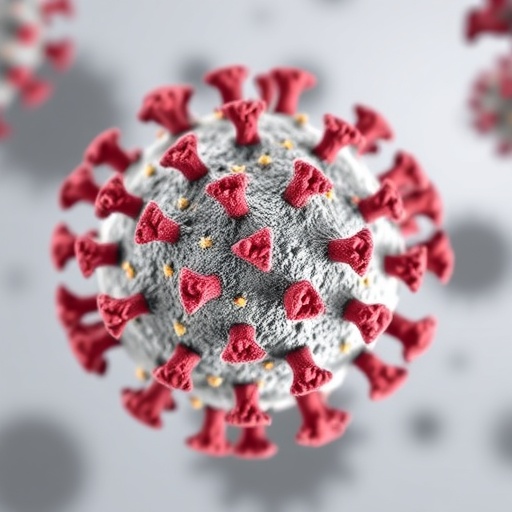The urgent need for global health innovation has never been clearer, especially in light of the COVID-19 pandemic, which underscored the dangers posed by viral pathogens. The Global Virus Network (GVN), a coalition uniting over 80 virology centers of excellence across more than 40 countries, has emphasized its unwavering commitment to enhancing pandemic preparedness through advanced technologies, particularly mRNA vaccine platforms. The significant role of vaccination as one of public health’s greatest achievements cannot be overstated, as immunization has been able to prevent an estimated 4.4 million deaths annually on a global scale.
Since the dawn of the 21st century, mRNA vaccines have emerged as forefront innovations in biomedical science. These vaccines have fundamentally altered our capacity to respond to viral threats rapidly and effectively. The impact of mRNA vaccines has been profound; estimates suggest that from 2020 to 2024, COVID-19 vaccines alone have prevented approximately 7.5 million deaths across the globe. Remarkably, within the initial six months post-rollout in the United States, over 298 million doses of mRNA vaccines were administered, with the vast majority of individuals reporting no significant adverse reactions, illustrating both the safety and reliability of these vaccines.
The efficacy of mRNA vaccines during critical phases of the pandemic further solidified their importance. Clinical data captured between March 2021 and January 2022 indicated that these vaccines reduced death rates by around 90%, while demonstrating a 94% effectiveness against severe disease during the Omicron variant wave. Unlike traditional vaccines that use attenuated or inactivated pathogens to induce immune responses, mRNA vaccines operate through a distinctive mechanism. They deliver synthetic genetic codes that instruct cells to produce harmless viral proteins, thus training the immune system without direct exposure to the pathogen itself, which is a significant safety advantage.
Despite gaining unprecedented attention during the COVID-19 crisis, mRNA technology has been under development for decades, primarily focused on addressing other viral threats such as rabies, influenza, and Zika. Furthermore, recent research has begun exploring the beneficial application of mRNA technology in cancer immunotherapy. This extensive history of research and development has equipped the scientific community with a robust understanding of mRNA, allowing for rapid advancements and effective responses in pandemic situations.
Experts in the field, such as Johan Neyts, PhD, Director of the GVN Center of Excellence at KU Leuven, Belgium, recognize that the technology underlying mRNA vaccines has revolutionized the speed and precision of responses to emerging viral threats. Neyts comments on the collaboration among various GVN members, indicating that such international partnerships are accelerating the innovation required for mRNA-based vaccines targeting not only coronaviruses but also diseases like dengue and Lassa fever, which represent significant public health concerns globally.
The success of mRNA vaccines extends beyond mere scientific achievements; it also hinges on public trust and acceptance. Heidi Larson, PhD, Founding Director of the Vaccine Confidence Project, highlights that the public’s willingness to embrace new technologies, especially those involving innovative platforms such as mRNA vaccines, is contingent upon maintaining scientific rigor alongside efforts to build and sustain trust within communities. The GVN plays a pivotal role in facilitating this trust via transparent and culturally sensitive engagement strategies aimed at bridging the gap between scientific innovation and public confidence.
Around the world, various countries are advancing the development of mRNA technology, focusing on enhancing infrastructure as part of their broader public health strategies and pandemic preparedness initiatives. Nations like South Africa, South Korea, Brazil, and Belgium are collaborating to enrich their research capabilities in this space, demonstrating a collective ambition to bolster global health emergency responses. South Africa, in particular, stands out as a leader in establishing sustainable mRNA vaccine research ecosystems. Quarraisha Abdool Karim, PhD, Co-Director at the GVN Center of Excellence at CAPRISA in South Africa, emphasizes the need for local empowerment through mRNA technology to address current healthcare challenges while investing in future scientific talent across the continent.
Central to GVN’s mission is a commitment to promoting a coordinated global approach in mRNA vaccine development and deployment. The GVN is actively working on expanding research and manufacturing capabilities in low- and middle-income countries to close gaps in vaccine access and promote regional resilience against emerging viral threats. Simultaneously, the organization aims to support cutting-edge mRNA innovations, including thermostable formulations, which could enhance global distribution capabilities, enabling life-saving vaccines to reach a larger and more diverse population.
Furthermore, the GVN recognizes the importance of combating vaccine misinformation—a significant barrier to public health efforts. Collaborative initiatives with educators, journalists, and community leaders are part of GVN’s strategy to ensure messaging surrounding vaccines is not only scientifically accurate but also culturally sensitive, thus fostering community acceptance and increasing vaccination rates.
The GVN strives to position itself as a science-driven entity dedicated to advancing global pandemic preparedness through dynamic knowledge exchange, enhanced training capabilities, and collaborative research endeavors. mRNA vaccine technology epitomizes what can be achieved through global collaboration rooted in transparency and evidence-based science, signifying a monumental leap forward in our collective ability to confront viral threats.
As we look to the future, the continued development and deployment of mRNA vaccine technology promise to profoundly influence public health strategies worldwide. These vaccines are not merely a reflection of scientific ingenuity; they represent a significant shift in how humanity can effectively prepare for and respond to viral pandemics. The GVN remains steadfast in its mission to champion these advancements while fostering the next generation of virology leaders for a healthier tomorrow.
Subject of Research: mRNA Vaccines and Global Healthcare Innovation
Article Title: The Future of Vaccine Technology: mRNA’s Pivotal Role in Global Health
News Publication Date: [Date of submission]
Web References: [Links to relevant sources if any]
References: [Citing any studies or reports referenced]
Image Credits: [Image credits if applicable]




